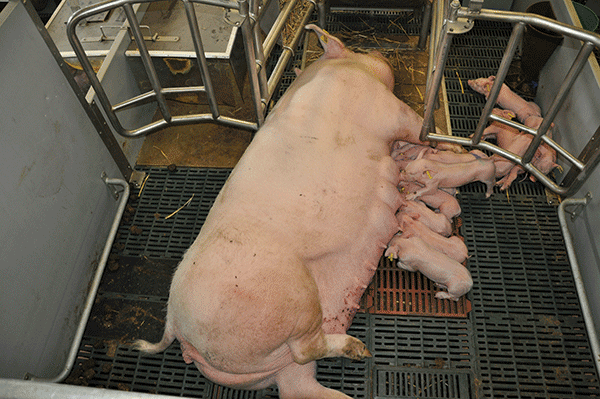Abstract
Since permanent confinement of farrowing and lactating sows is known to impair sow welfare, temporary crating may be considered an alternative, with the aim to keep piglet mortality at an acceptable level and improve aspects of sow behavior. We therefore compared live-born piglet mortality in five different pen types with varying size (5.5-7.3 m 2 ) which had been designed for temporary crating. For this purpose, all pen types were equipped with crates, which can be opened to allow the sows to move around to a limited extent. In all housing systems, three different confinement periods were investigated compared to free farrowing. Total live-born piglet losses were highest when the sows were not confined at all, and temporary crating reduced piglet mortality.
There were, however, no differences between confinement one day before expected farrowing until three or five days after parturition or when sows were crated after parturition for three days. Confinement of the sow for three days after farrowing is therefore an effective measure to reduce live-born piglet mortality in the pen types tested. No differences between pen types were found suggesting that all five pen types provided conditions, which were equally suited to result in similar live-born piglet mortality rates. Therefore, systems for temporary crating have the potential to contribute to improved sow welfare without increasing piglet mortality.
However, it remains important to investigate to what degree these systems actually improve sow behavior and welfare. Also, pens with larger space allowance and different design elements should be considered and tested, to reduce confinement of sows around farrowing even further.
(Birgit Heidinger, Kristina Maschat, Sabrina Kuchling, Lisa Hochfellner, Christoph Winckler, Johann es Baumgartner, Christine Leeb (2022))







